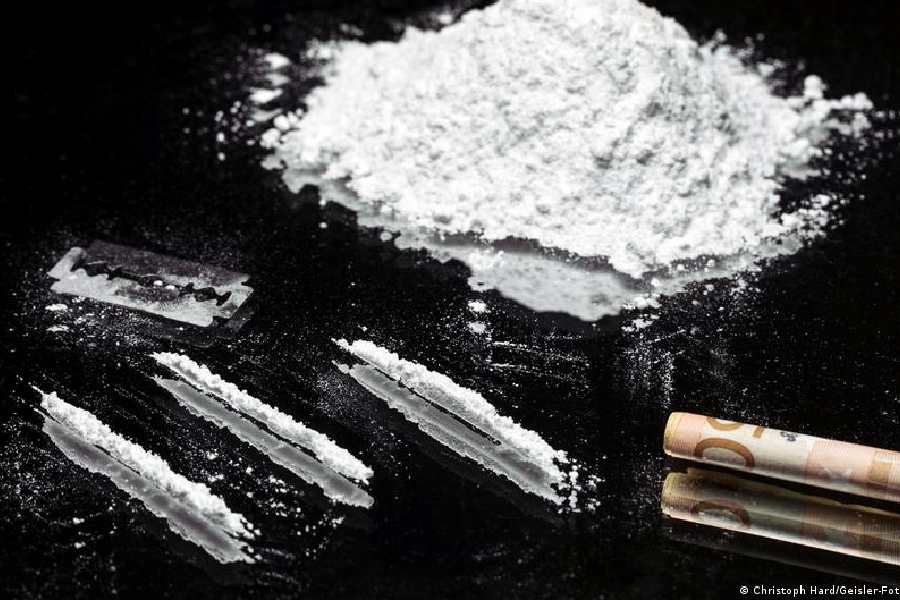Cocaine use is at a record high: Experts at the United Nations estimate that about 22 million people took the drug in 2021. That's more than the population of the US state of New York.
In Europe, cocaine is the second most common street drug after cannabis. The substance, which is extracted from coca leaves, is typically snorted as a powder.
It is highly addictive and can cause organ damage. Cocaine pushes the body to its limits, resulting in a physical effect similar to running a marathon. Withdrawal can cause intense physical and mental stress.
Researchers in Brazil hope to support people struggling with cocaine addiction with a vaccine that would stop users getting high off the drug and lower their risk of addiction.
When cocaine is snorted or smoked through a pipe as crack, the substance quickly reaches the brain via the blood.
There, the drug stimulates the body to release various messenger substances, including dopamine. The overriding sensation is one of intense euphoria.
The body gets hyperactive and irritable. The heart pumps at full capacity, the arteries narrow. Blood pressure and body temperature rise. Needs like hunger and thirst grow irrelevant. In the worst case, cocaine consumption can lead to convulsions or cardiac arrest.
The high lasts between five and thirty minutes.
"It feels like all the traffic lights become green," said Hanspeter Eckert, a therapist at a Berlin drug therapy association.
The brain wants more. And the body stores the experience as one that is "important for survival," said Eckert.
When you're addicted, the desire for more cocaine dominates your mind. Inner voices warning you of the consequences grow quieter.
You might start to neglect aspects of your life that were once important — your health, friends and work.
The researchers in Brazil want their vaccine to encourage the body to produce antibodies that would bind to the drug when it's consumed, and make it more difficult for the substance to pass through the blood and into the brain.
If the cocaine can't reach the brain and stimulate it, the user can't get high. And those brain reactions that trigger cravings stop as well.
The patient perceives the drug differently, said Frederico Garcia, a researcher helping build the vaccine at Brazil's Federal University of Minas Gerais, in an interview with DW Brazil.
Garcia's research team has conducted trials of the vaccine on rats. They think the results of these experiments could be transferable to humans. If so, their vaccine would be the world's first anti-cocaine jab.
Researchers in the US are also developing a cocaine vaccine.
Clinical trials on humans are pending, and it is still uncertain when and whether either vaccine will become available.
Eckert welcomes vaccine research in principle: If intoxication doesn't occur, the mind can relax and the body can free itself from the permanent irritation of addiction, he said.
But Eckert said he was also skeptical. Therapy is hard work, he said, and people need at least a year of treatment to heal, to reflect and understand their bodies and minds, to discuss their feelings and problems and find the courage to make difficult decisions.
It is only by confronting hard questions — for instance, are there friends I should avoid, and how will I endure the physical pain of withdrawal? — that patients can gain back control of their lives, said Eckert.
The vaccine is not intended for occasional users.
Eckert warns that those who are vaccinated could find themselves at a higher risk of cocaine overdose. If you consume the drug and it doesn't "kick" in the way it once did, you may reach for a higher dose, which would overload your system and potentially result in cardiac and respiratory arrest.
A vaccination would only be suitable for a small number of people already in therapy, Ferri said. It wouldn't have any benefit for addicts and users who are unable to access counseling for their addiction.










